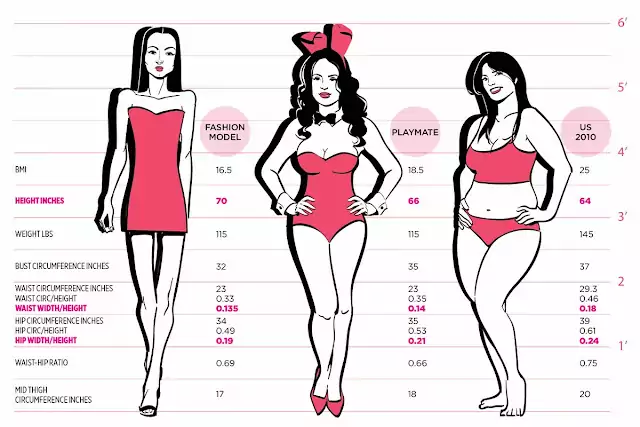Liposuction, implants, nips, tucks, fillers and falsies. It’s incredible the lengths we are driven to in order attain the ideal body. Bingeing, purging, buffing, sloughing and detoxing. Are we a nation obsessed? Judging by the preoccupations of the mainstream media, quite possibly so.
Shifting Perception of What is Attractive
The body most covetable has changed through the ages, reflecting the evolution of values and cultural trends, but now, in a day and age where our knowledge and understanding of what constitutes good health, is at an all time peak, perhaps it is truly time to shift the ideal from the aesthetic to one of sound physical, not to mention psychological, health.
Subjective interpretation of what is considered attractive varies greatly, but the objective truths defining what is healthy only change with new discoveries and uncovered scientific facts.
Making Sense of Weighty Issues
As with most things knowledge and understanding puts you at an advantage from the start. If you are in any way concerned about or preoccupied with your weight seek out the basic facts on the key principles of a healthy diet and some of the anthropometric measurements that provide information about how healthy your weight and weight distribution are (e.g. BMI, waist circumference and waist to hip ratio).
Only take advice from reliable sources such as qualified Dietitians and medical professionals and organisations like the British Dietetic Association, the Nutrition Society, the British Nutrition Foundation and the Food Standards Agency. These will give unbiased information and maintain clear health objectives.
Be cautious when it comes to finding a good nutritionist. Whist the Nutrition Society keeps a register of qualified practitioners and this is very useful in terms of finding someone with the necessary credentials, “nutritionist” is not a protected title and many self-titled nutritionists continue to get away with giving decidedly inappropriate advice.
Give Yourself a Break
if you find yourself obsessing over dietary matters and body shape try and give yourself a break with strategies to put things back into perspective. The cycle of worry can be self-perpetuating and takes a conscious decision to break. Confide in someone who is able to be objective about your concerns.
Be kind to yourself when it comes to eating and be mindful of the importance of balance, variety, moderation and flexibility.
Limit your exposure to popular media. Being bombarded with unrealistic and unhealthy ideals of body image and beauty influences perceptions about the Self and can contribute to feelings of low self esteem.
